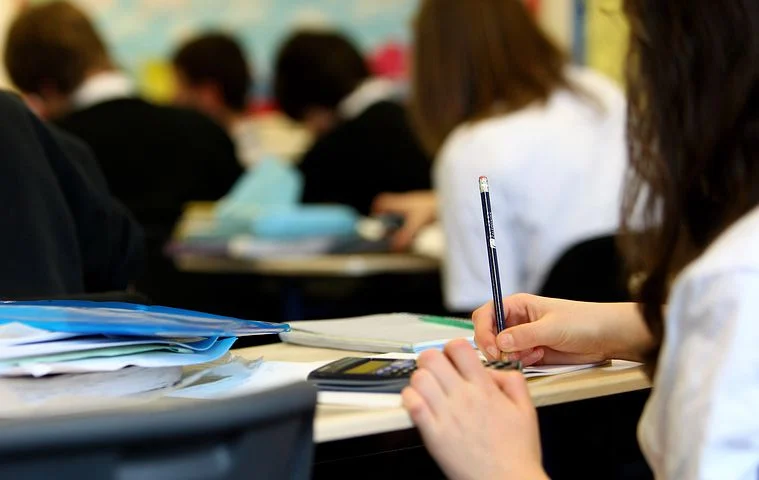Transformation Amid Covid-19 - A Silver Lining for Higher Education?
The positives of the pandemic that transformed Higher education. By Lina Bastidas, Content Marketing Manager at Unibuddy
Unibuddy will be speaking at the Higher Education Marketing Conference 2021 in June 2021.
The Higher Education sector was not nearly prepared for the effects of a global pandemic, like the rest of the world, Higher Ed had to pivot, change, shift and navigate through the uncertainty that came with Covid-19. Not only did it have to cater to the urgent needs of its current students but the needs of its staff as well as its prospective students. Taking an urgent but necessary digital approach was initially challenging but once executed successfully it was an eye-opener and perhaps an involuntary but much-needed shakeup.
Once the challenges were overcome and the sector adapted to a digital-first approach, it became clear that the changes were welcome. And despite the negative criticism initially endured, it was evident that higher education had seen a positive shift in its traditional methods of educating and recruiting.
We take a look at some of the positives from the pandemic that transformed higher education for years to come.
The advantage for the disadvantaged
Virtual open days, events, and peer-to-peer platforms gave students from disadvantaged backgrounds the opportunity to access information from multiple universities online, as well as attend multiple events and open days without having to think about the costs of paying for travel.
A study by UCAS shows ‘a record 28,030 18-year-olds from the most disadvantaged backgrounds across the UK have been accepted into university – up 8% on the equivalent point last year.’ Highlighting an increase in students from disadvantaged backgrounds attending university in 2020.
The increase may be due to the fact that having access to a wide range of information online meant students didn’t have to attend universities in person. It meant they had access to all the information they needed without thinking about travel arrangements or being away from home. For those that support their parents in caring for an elderly relative or young siblings, this would have been a huge benefit.
Confidence for the less confident
As the pandemic got worse, so did our mental health and students were some of the most affected. Anxiety was at an all-time high and therefore having access to peer-to-peer recruitment strategies allowed for information to be easily accessible online. It meant prospective students were able to ask staff questions and gain all the insight into the universities they wanted without leaving their house and exposing themselves or their parents to the virus.
It was also a benefit for students who normally deal with issues such as social anxiety as they were able to speak up during a virtual open day, have the confidence to ask questions and find out more about the university in a way that was comfortable to them, allowing everyone involved to have the same opportunity to ask questions with confidence.
Improved skills via e-learning
E-learning was a brand new concept for many students. Traditional methods of learning have always taken preference and therefore students were unfamiliar with the approach. By giving them the opportunity to take lectures online and speak to their tutors, they were able to learn independently, at their own pace, and in their own comfortable environments without the distractions of a busy lecture room. Creating an autonomous learning approach and a more proactive student.
It also supports all the different types of personalities that may be affected by in-person learning. For example, introverted students may feel a lot more confident in asking questions and speaking to their peers and those dealing with mental health issues may feel less pressured than being in a lecture room and
have a more pleasant learning experience.
An incentive for International Student Recruitment
International students and recruitment suffered a great deal throughout the pandemic. However, with access to virtual open days and much more information online than ever before, they had a better experience and outlook on their institution choices, as well as the number of students and staff they were able to
speak to.
The fact that open days and events became much more reachable and sophisticated by adapting an online strategy, gave international students a better opportunity to get informed on courses, university culture, and current students and staff. It also gave them the chance to consider other overseas universities that were closer to home than perhaps those they would have originally considered.
An improved student experience via ed-tech
One of the most beneficial effects of Covid-19 on the higher education sector may have been the emphasis that was placed on Ed-tech, if there was ever a time we
saw a fast forward in the use of education technology it was in 2020. Traditional methods of education and recruitment were challenged and those in charge were prompted to think outside the box and come up with resourceful solutions to a global problem. Initiatives that had been in the pipeline before, were forced to fast forward, providing an updated digital approach to the higher ed sector.
Despite the initial panic, there were many positives in the way education and recruitment were handled in the pandemic. Overall demand for higher education increased, with a record of ‘515,650 students with a confirmed place – up 4% on 2019’ as suggested by UCAS.
We look forward to continuing to support you in navigating the new normal and
adapt to a hybrid approach to education and recruitment.



